Premium Only Content

Right to Believe.
Do We Have the Right to Believe What We Want to Believe?
In theory, freedom of belief is one of the cornerstones of any society that claims to be free. The right to hold our own thoughts, to interpret reality according to our conscience and judgment, is enshrined in principles like freedom of expression, freedom of religion, and freedom of thought. Yet, in today’s world, it feels as if this right exists more on paper than in practice.
Let’s begin with the obvious: belief is an internal matter. No authority can truly reach into our minds and forcibly rewire our convictions. You can imprison a body, censor a book, or suppress speech, but belief—like thought—has always been stubbornly resistant to control. And yet, modern societies have found increasingly effective ways to police belief not by force but through social mechanisms: ridicule, vilification, demonization, and isolation.
This tension is nowhere more obvious than in how people are treated when they challenge the “official narrative” of major events. Take, for instance, the terrorist attacks of September 11, 2001. For many, the horror of that day is straightforward: a group of foreign terrorists hijacked planes and caused massive loss of life. But for others, unanswered questions and perceived inconsistencies opened the door to alternative theories about what really happened. Those who voiced such theories quickly discovered the price of stepping outside the accepted version of events. They were dismissed as “truthers” or “conspiracy nuts,” treated as threats to national unity or even as sympathizers with terrorists themselves.
Fast forward to the Covid-19 pandemic—a global crisis that brought the clash between belief and official narrative into sharp relief. The dominant line was clear: trust the experts, follow the guidelines, get vaccinated. Yet not everyone trusted the information they were given. Some questioned the speed of vaccine development, others doubted the statistics, and some challenged the lockdowns and mandates. Those who did so were labeled “anti-vaxxers,” “science deniers,” or worse. They were demonized in the media, ostracized by friends and family, and in some cases lost jobs or faced censorship online.
Is this simply the price of living in a society where misinformation can do real harm? Or is it something darker—a social coercion that quietly erodes our basic right to think for ourselves? The reality is that both things are true. It is undeniably dangerous when false beliefs spread widely enough to put lives at risk. But it is also dangerous when people feel they cannot ask questions or hold unpopular views without fear of being ruined.
This raises the question: if we do not have the right to believe what we want—free of persecution—do we really have freedom of belief at all? Or is it a polite fiction that conceals the fact that belief, too, is policed by invisible lines drawn by governments, media, and the collective opinion of the masses?
We live in an age where the freedom to doubt is as important as the freedom to believe. When the official narrative becomes the only narrative you are allowed to hold, belief itself loses meaning. The progress of science and democracy depends on our ability to challenge orthodoxy, to ask difficult questions, to test what we are told, and to hold minority views. If we lose that freedom—if we trade it for the comfort of enforced consensus—then we have traded something precious for something hollow.
In the end, the right to believe what we want is not a license to harm or deceive others. But it is a right to be human: to question, to wonder, to doubt, and to see the world in our own way. If that makes us outsiders, so be it. History shows that the outsiders, the doubters, and the heretics are often the ones who drag the world forward—kicking and screaming—into uncomfortable truths.
Right to Believe
Verse 1
They tell me truth’s a chain-link fence
With guards in suits and consequence
Speak your mind, they’ll call you mad
A conspiracy, a passing fad
But I remember when doubt was wise
When questions opened up our eyes
Now you’re labelled, mocked and shamed
If you see the world another way
Chorus
I’ve got the right to believe
Even when they say I’m wrong
I’ve got the right to grieve
When their version feels so strong
You can silence every question
Lock my voice behind your walls
But the right to believe
Lives in me when empires fall
Verse 2
From towers down in New York skies
To hidden truths behind their lies
A virus comes, they say obey
Or get cast out and pushed away
Where’s the freedom to disagree?
When did doubt become a plea?
What’s a mind if it can’t roam
What’s a soul if it’s not our own?
Chorus
I’ve got the right to believe
Even when they say I’m wrong
I’ve got the right to grieve
When their version feels so strong
You can silence every question
Lock my voice behind your walls
But the right to believe
Lives in me when empires fall
Bridge
So let them laugh and point their guns
Truth will out when time has run
Freedom’s seed they can’t uproot
A thousand voices bear the fruit
Chorus
I’ve got the right to believe
Even when they say I’m wrong
I’ve got the right to grieve
When their version feels so strong
You can silence every question
Lock my voice behind your walls
But the right to believe
Lives in me when empires fall
Outro
Ask. Doubt. Believe.
Your mind is yours to keep
No permission slip for freedom
No price too high to seek
I’ve got the right to believe…
Yeah, I’ve got the right to believe.
-
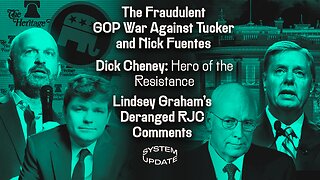 1:38:28
1:38:28
Glenn Greenwald
4 hours agoThe Fraudulent GOP War Against Tucker and Nick Fuentes; Dick Cheney: Hero of the Resistance; Lindsey Graham's Deranged RJC Comments | SYSTEM UPDATE #544
66K59 -
 LIVE
LIVE
Barry Cunningham
2 hours agoBREAKING NEWS: PRESIDENT TRUMP HOSTS A STATE DINNER | FOX NATION PATRIOT AWARDS!
5,994 watching -
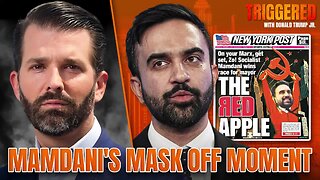 48:42
48:42
Donald Trump Jr.
4 hours agoCommunism vs Common Sense, What's Next for NYC? | TRIGGERED Ep.289
96.6K215 -
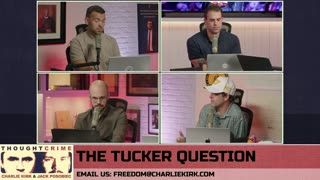 1:31:25
1:31:25
The Charlie Kirk Show
3 hours agoTHOUGHTCRIME Ep. 104 — Post-Election Palette Cleanser + Tucker/Fuentes Interview Reaction
53.7K26 -
 LIVE
LIVE
tminnzy
2 hours agoSmooth Moves Only 💨 | Naraka: Bladepoint Chill Gameplay | !gx
94 watching -
 1:04:33
1:04:33
BonginoReport
4 hours agoWill The LA Dodgers Dodge WH Visit?! - Nightly Scroll w/ Hayley Caronia (Ep.172) - 11/06/2025
36.4K62 -
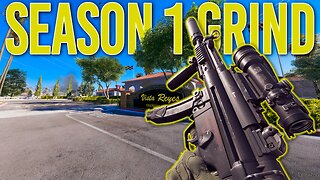
Tundra Tactical
5 hours ago $0.01 earnedDadlefield Game Night BF6 New Update Weapon Grind
20.2K4 -
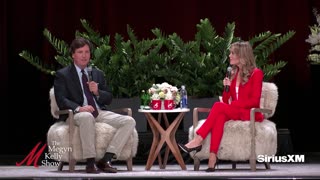 15:39
15:39
Megyn Kelly
6 hours agoTucker Carlson on Why He Interviewed Nick Fuentes and What He Wanted to Convey To Him
49.8K75 -
 1:14:10
1:14:10
Kim Iversen
5 hours agoZionists PANIC Over Muslim Mayor In NYC
84.6K171 -
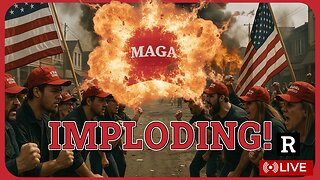 1:50:40
1:50:40
Redacted News
5 hours agoBREAKING! Trump Makes HUGE Announcement Trying To Save MAGA, Cost of Living & Israel CRUSHED GOP
117K237